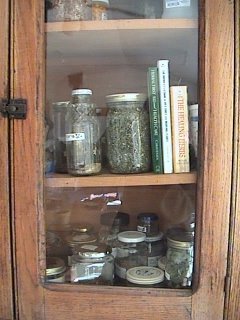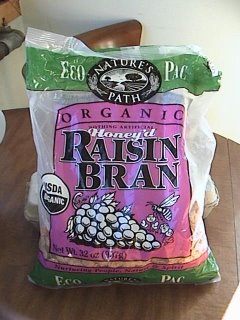Reducing Waste Begins With Purchase
For quite some time I have been putting a lot of emphasis on reducing the amount of waste I produce. Here in rural northern Wisconsin we have no trash pick-up, but must take our waste and recycleables to the local township transfer station, which is open Saturdays 8-1. We also have to purchase yellow trashbags for two dollars a piece. Fortunately recycling is free, but no paperboard or plastics beyond #1 & 2 are accepted. This inconvenience has made me work even harder on reducing waste. For a family of two, we barely fill up a plastic grocery bag with garbage weekly. Here are a few things I have found help:
1. Think about how much of the product you are buying will end up as garbage. Just being aware of how much unnecessary packaging is in a product can help me decide which product to purchase. I try to avoid products that come in both boxes and plastic bags. There seems to be more waste than food.
2. Try to use products that come in returnable containers. Many dairies are now offering milk in returnable glass or plastic bottles. Many local egg producers also are happy to get their cartons back. we even have a local berry farm that takes back its cartons.

Some of the versatile containers I reuse-or are designed for reuse
3. Buy in bulk. This one is a no-brainer. If you are lucky you will have a business that offers more than beans and rice in bulk. I am able to buy most of my food and households like laundry soap, shampoo, and dish soap. It helps to have a business that has scales set up for weighing your own containers instead of having to use new plastic bags. Some co-ops even have old clean containers already weighed for customers to use.
 Even our herb/medicine cabinet contains items bought in bulk
Even our herb/medicine cabinet contains items bought in bulk4. Buy larger quantities. If buying in bulk isn't an option consider purchasing a larger version of the product.
 This brand of cereal creates little waste. Sometimes I even reuse the bag.
This brand of cereal creates little waste. Sometimes I even reuse the bag. 5. When buying a product in a container, consider its reusability. I love Nancy's products because they use a #2 instead of #5 like other yogurt companies. These are more durable and take the place of tupperware in our household.
6. Set up a compost. Even when I lived in a city I had a backyard compost.
 My rustic, homemade compost bin.
My rustic, homemade compost bin.7. Shop at thrift shops and garage sales. When buying things other than food, it helps to buy products used because the packaging has already been eliminated.
8. Reuse as often as possible. Boxes, containers, envelopes- whatever. Before recycling it is best to reuse.
9. Finally, those wonderful canvas bags. Don't leave home without em'. I will take a plastic bag from a thrift shop every now and then to use as my garbage bag.
I'm sure I'm just touching the tip of the iceberg. I'd be happy to hear how others are tackling this issue.


7 Comments:
We shredd all our paper and use it as chicken litter. My birds prefer it to anything else I have put in with them. It gets mix in with straw. And when we clean out, it will end up in the compost.
Excellent post! I love to see that you think about ways to reduce hte waste that comes into the house.
We have decided that one of our holiday gifts for each other will be a bucket for vermicomposting.
The reduce, reuse, and recyle should also include refuse!
phelan:
I want to get chickens eventually. They are good for so many things.
emme:
Believe it or not I have never heard refuse added to the equation. It's great.
Excellent post. I do not understand though - why do you have to pay $2 for a yellow trash bag? Our city bags are yellow, and they're free for cleaning up around town. What gives in your neck of the woods?
We do all the things on your list. :) I am the queen of reusing bags, and although I try to minimize my use of plastic bags, I make sure to get every last bit of life out of them before they're "retired".
When we lived in the suburbs, we'd only put out a small brown bag of trash each week. Sometimes I wouldn't bother to put it in the can (it seemed so silly), but I had to start when the trash collectors ignored it. I definitely prefer going to the transfer station because we only make the trip a few times a year.
When we lived in Michigan, we had to pay $1 a tag. You had to place these tags on the free yellow bags.
Since our townships are small, our waste transfer stations are basically just a dumpster. We don't have to pay to dispose of the garbage, just buy the bags in advance. I have to admit that I cheat. Since we produce such little garbage, when I get a small grocery bag or cereal bag full I drop it off in a garbage at a rest area or gas station. I have yet to buy any yellow bags.
Post a Comment
<< Home